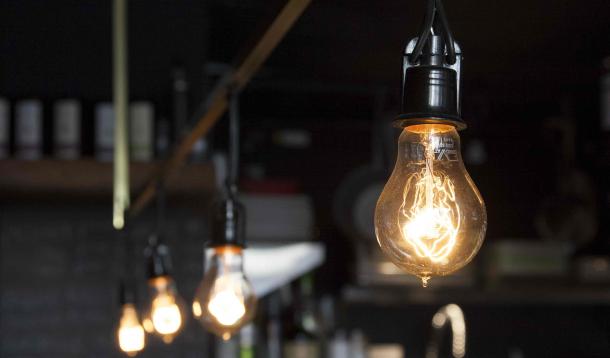
I try my best to teach my kids to respect the environment. I’m not a treehugger by any means, but I do everything I can to ensure my kids understand the value of protecting the natural world. I recycle, I compost (overcoming my utter disgust with maggots), I do my best to make my home energy efficient, and I’m constantly investigating new ways to reduce my impact on the environment.
One thing I didn't do however was to turn off my lights for Earth Hour.
That’s right, the gold standard for token environmentalism wasn't recognized in my home. Do I hate the Earth? Am I a climate change denier? Nope. For me the reason is simple: Earth Hour does little to support the environment and actually promotes a lot of unhelpful ideas about protecting the planet.
The act of shutting off your lights for an hour may sound like a powerful gesture, but it does relatively little to help the environment. Power grids are complicated systems that don’t just flick off and on like a light switch. Even if the entire planet shut down, the system can’t just shut off, it has to be on stand by at all times to provide the power our planet needs to function. Of course many will say that the purpose of Earth Hour is awareness, but the problem is that we are focusing on the wrong issue. There is nothing inherently wrong with electricity. Electricity is marvel of human ingenuity and the backbone of our civilization. Electricity isn’t dirty or clean, it’s a natural phenomenon that humans have managed to harness. There is nothing artificial about it. The act of shutting off the lights teaches kids that electricity is the issue when, in fact, it’s the method of generating that electricity that should be the focus. If your house runs on solar power should you turn off your lights? What if your energy comes from hydroelectric as most of Quebec does? Earth Hour has the focus all wrong, and can confuse kids by making them think electricity is bad.
There are over one billion people on Earth without access to electricity at all. For them, the idea that people in the developed world would vilify the source of their light, heat, clean water and cooking power must seem bizarre. Do you know what people without electricity do to keep warm, create light, boil water and cook their meals? They burn carbon, and much less efficiently than we can. When we talk about climate change the focus is often on oil, but the real culprit is carbon from any source. Whether you’re burning oil, gas, wood or dung you’re releasing carbon into the atmosphere. Whereas modern electricity systems are very efficient at turning carbon into power (and that doesn’t even include the green sources that don’t burn carbon at all), burning wood, paper or dung on a fire to stay warm is highly inefficient, and toxic.
![]() RELATED: The Thing You're Forgetting to do After Earth Hour
RELATED: The Thing You're Forgetting to do After Earth Hour
For the billions who still burn carbon the old fashioned way, electricity isn’t just a nice thing to have, it saves lives. Millions in the developing world die every year from smoke inhalation because they burn carbon indoors to keep their family warm or cook a meal. These families would give anything to have the one hour of electricity we’re giving away in the developed world.
So what should we do? Well, rather than sitting in the dark for an hour (presumably with your electric-powered furnace still on), why not talk to your kids about real solutions? Do you compost yet? I’m in the minority on my street every garbage day when I take my compost bin to the curb. How about researching ways to make your home more energy efficient. Something as simple as remembering to shut off the lights every time you leave a room can make a much bigger impact that one hour of one day sitting in the dark. If you want to think really big, why not investigate getting some or all of your power from renewables. Solar panels are dropping in price and improving in efficiency every day, however something as simple as buying green energy credits can help fund the development of new renewable sources and contribute towards lowering costs in the future.
The bottom line is that Earth Hour is a concept with a noble goal but it gives off all the wrong messages. If we’re going to start to wean ourselves off carbon-based energy, we have to understand the connection between our actions and real results. It’s too late for token gestures that make us feel good and give the illusion that we’re making an impact. Teaching kids that electricity is the problem not only misses the point, it does a tremendous disservice to all the positives it has brought us. Electricity keeps our food fresh, heats our homes, lights our schools, powers our hospitals, and saves millions of lives every year. I want my kids to grow up respecting the Earth, but I also want them to have respect for the advancements our society has built that make us safer, healthier and more prosperous than at any point in human history.